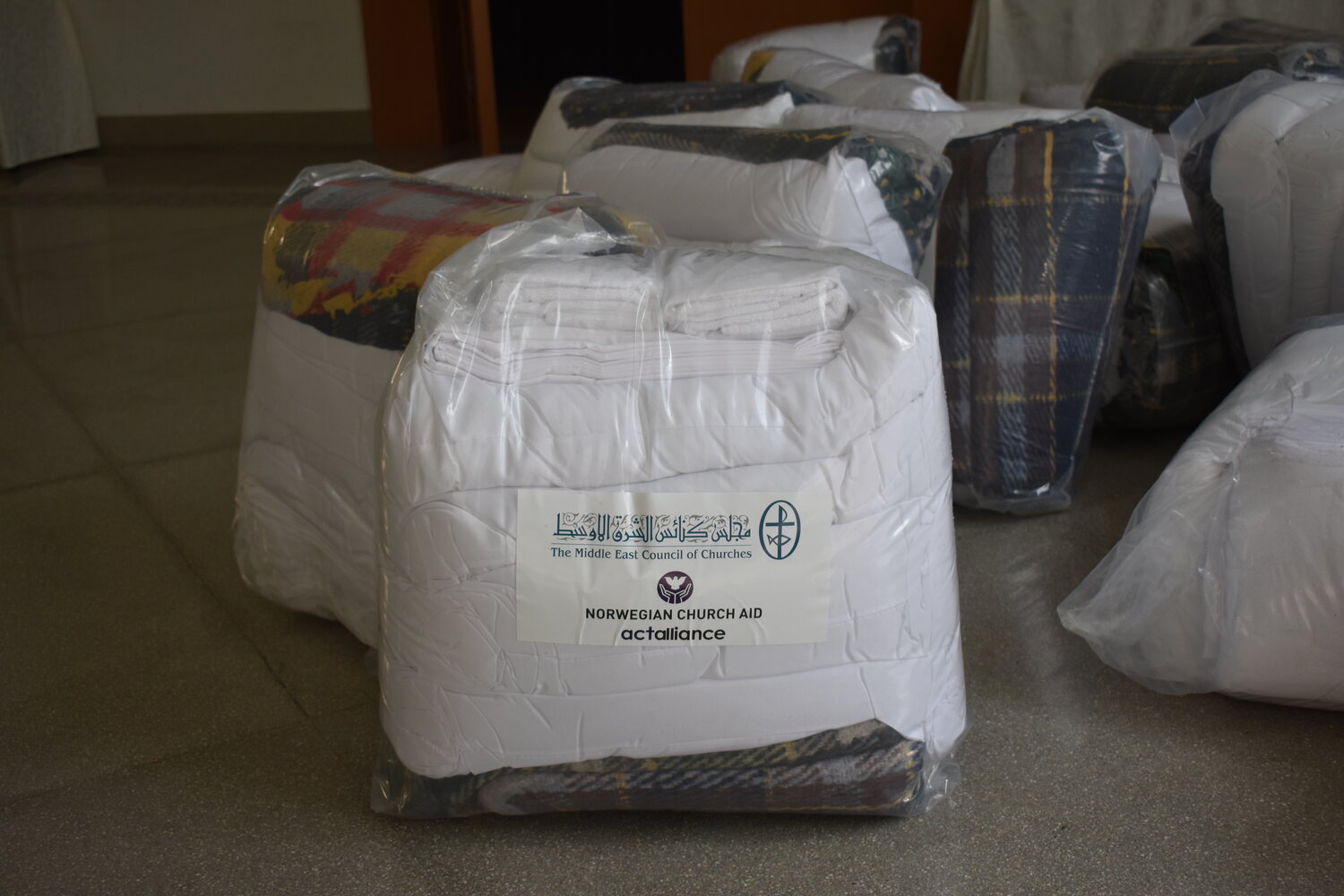A lady affected by the Beirut Blast, said in confused and bittersweet tears while receiving a box of aid offered by the Middle East Council of Churches (MECC) “I did not expect to receive cleaning products that would last me for 3 to 4 months, especially that I was not capable of, buying them myself”.
In fact, since the 4th of August, this lady’s tears have been burning. She described the pain and despair that are dominating Beirut’s people who, without individual initiatives and assistance of churches and civil societies, would have been neither helped nor supported in these tragic and brutal circumstances.
These are the circumstances of all of those who have been affected by the Beirut Blast, whether financially, morally or psychologically, they are all waiting for a glimmer of hope to rise from underneath the rubble and the dust.
The Beirut earthquake represented a fatal blow that destroyed their lives amid already existing difficult living conditions. Organizations and associations stood by the people to help them and support them since they won’t be able to face the consequences of this tragedy on their own.
The Middle East Council of Churches (MECC) which launched the two appeals to save the destroyed city and its suffering people, also called to form an Ecumenical committee consisting of a team from each department, with representatives of the church members, Eastern Orthodox, Orthodox, Evangelical and Catholic to coordinate together to identify the citizens’ needs and fairly distribute aid.
Father Nicolas Abboudi, a member if the Ecumenical Committee from the Catholic family and the intendent of the Melkite Greek Catholic Arch eparchy of Beirut and Byblos said: “through this ecumenical work we are able to be a united church to help all people and to make them feel that they have someone to support them”. With these sincere feelings Father Abboudi expressed his hope regarding the work done by the Council and the support of all churches united that can bring back hope to the people who are suffering under the weight of the calamity.
The council’s international partners chose to support the Council by giving hope to the afflicted, and they rushed to answer the Council’s appeal. Reverend Rima Nassrallah added: “People lost hope, and with our support they will be able to see a glimmer of light. The churches and religious institutions are trying to provide this light, this way we encourage each to strengthen our faith and live with greater hope”.
In order to fulfill this role and support, the Council’s service and relief service Diakonia has cooperated with several international organizations such as “Act Alliance”, “NCA”, “Tearfund”, “CAFOD” and others; where they continue their initiatives to provide assistance to the affected people on various levels, such as food rations, cleaning and hygiene products, as well as providing mattresses, pillows, winter covers and even cash assistance.
In this context, the Diakonia department continues its tour in the field to deliver a new batch of aid packages to the officials in the member churches to be distributed to the biggest number of the most vulnerable families in different regions in destroyed Beirut and its suburbs. But the needs of the Lebanese are increasing every day, especially as the economic, social and health crises have worsened. Soon, they won’t be able to secure medicines, household appliances, and even pay for schools. However, prayer remains the only source of strength in these difficult circumstances. As for the director of the Armenian Evangelical Social Action Committee, Ms. Lena Dagulian, hoped that “we will be free from these tragic circumstances as soon as possible”, she later on added “I pray for peace and stability and God will lead us on the right path”.
In addition, the Middle East Council of Churches and Tearfund launched the cash assistance project, which will be launched in Bourj Hammoud area, taking into consideration that about 40% of the homes in the region have suffered minor damages and that their residents are already suffering from extreme poverty before the explosion. The Middle East Council of Churches is keen to help all those affected by in order to reestablish their hope and strength and to be able to live in dignity. Knowing that the Council continues its humanitarian and relief mission in various countries ever since it was founded in 1974.
Source: mecc.org






